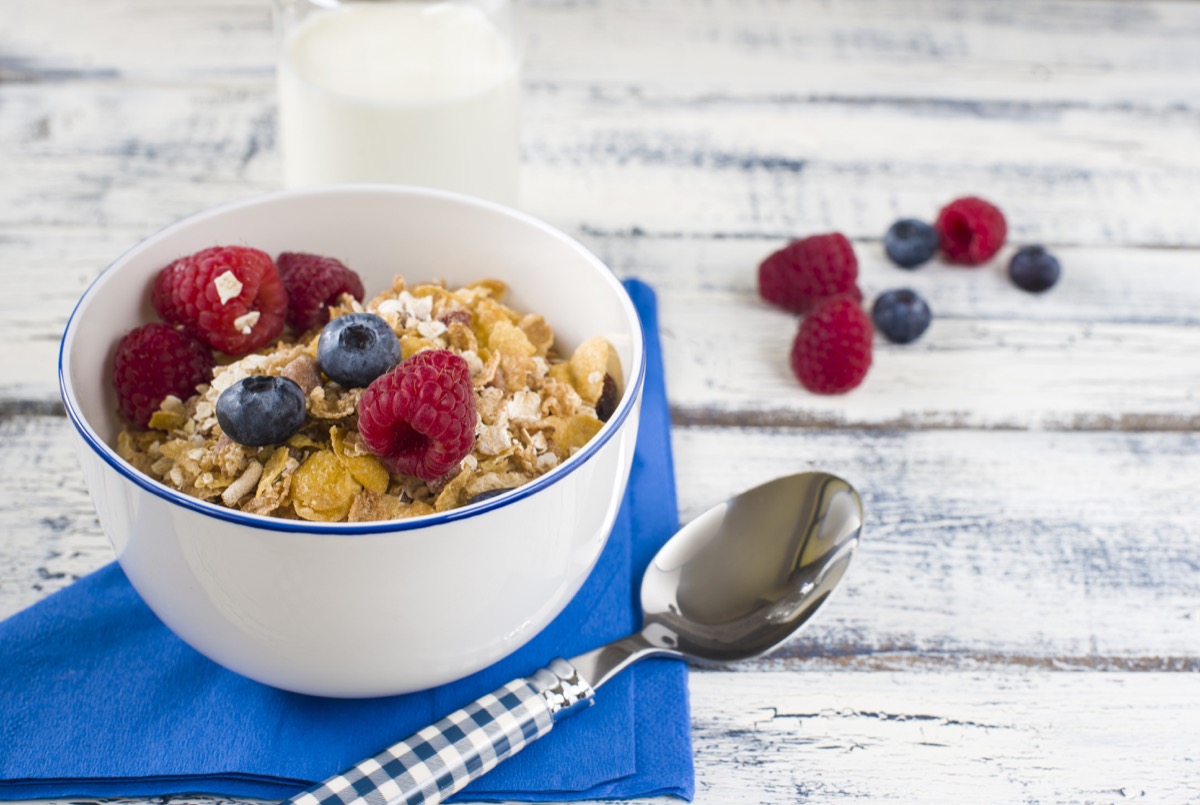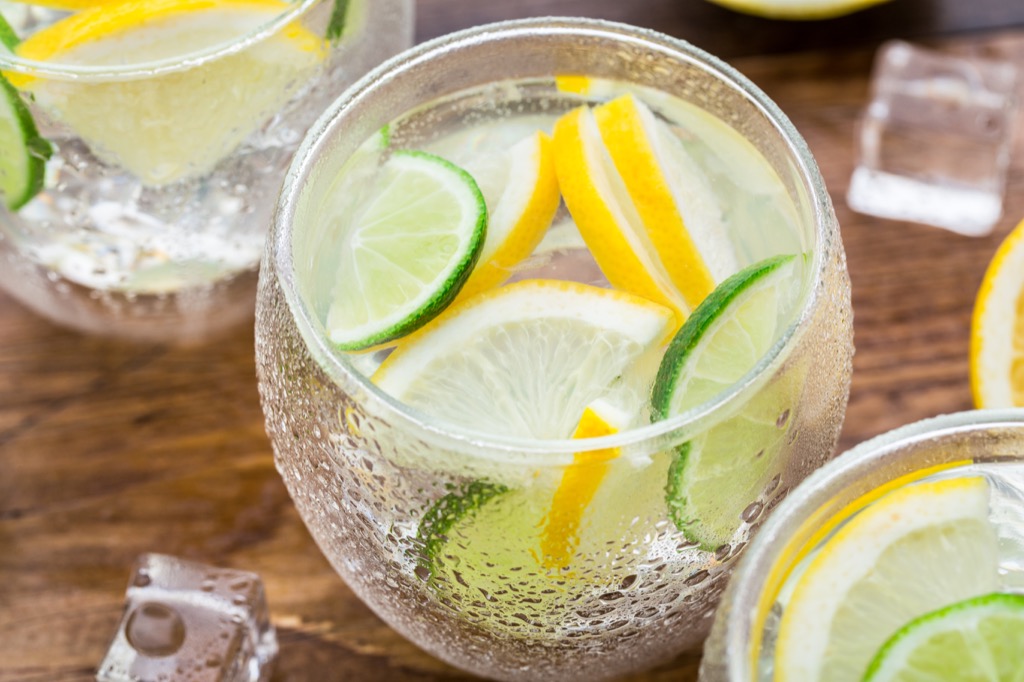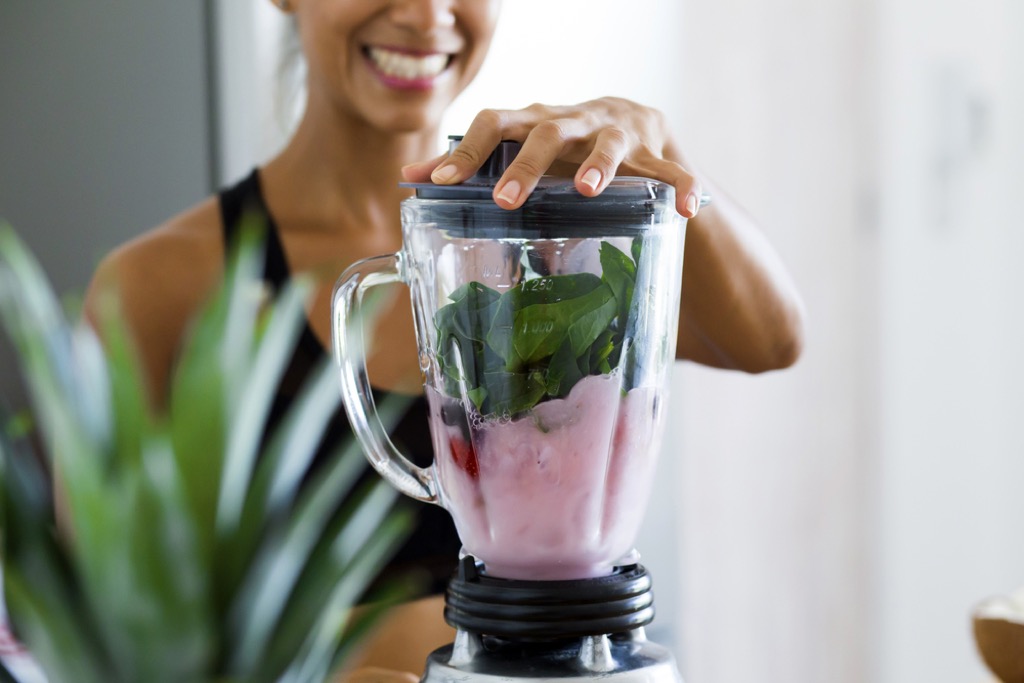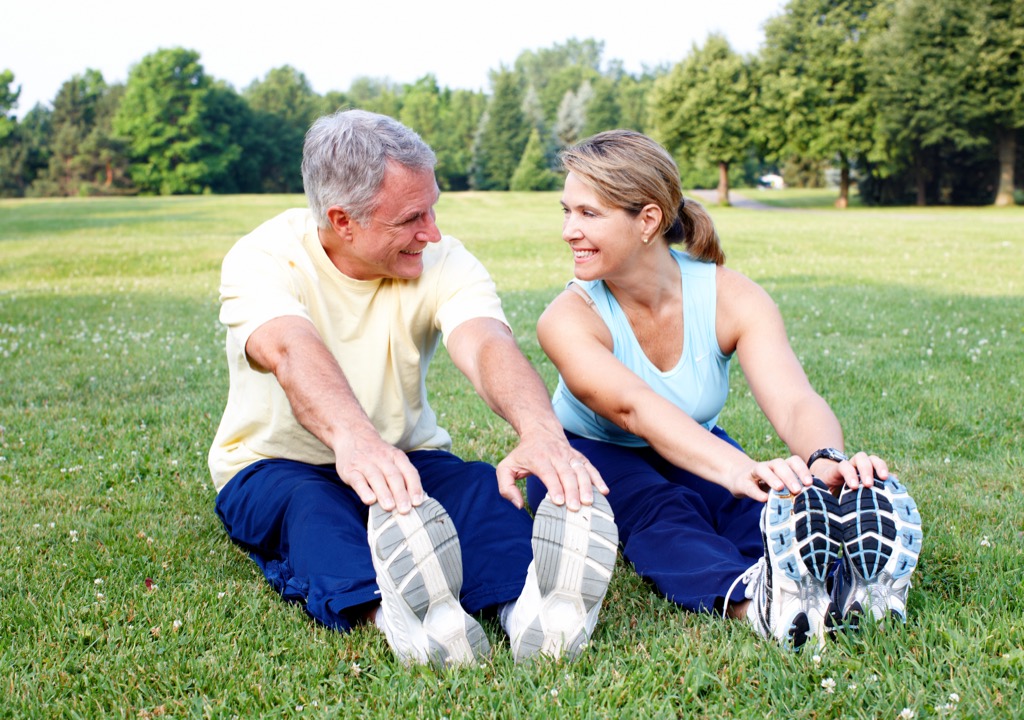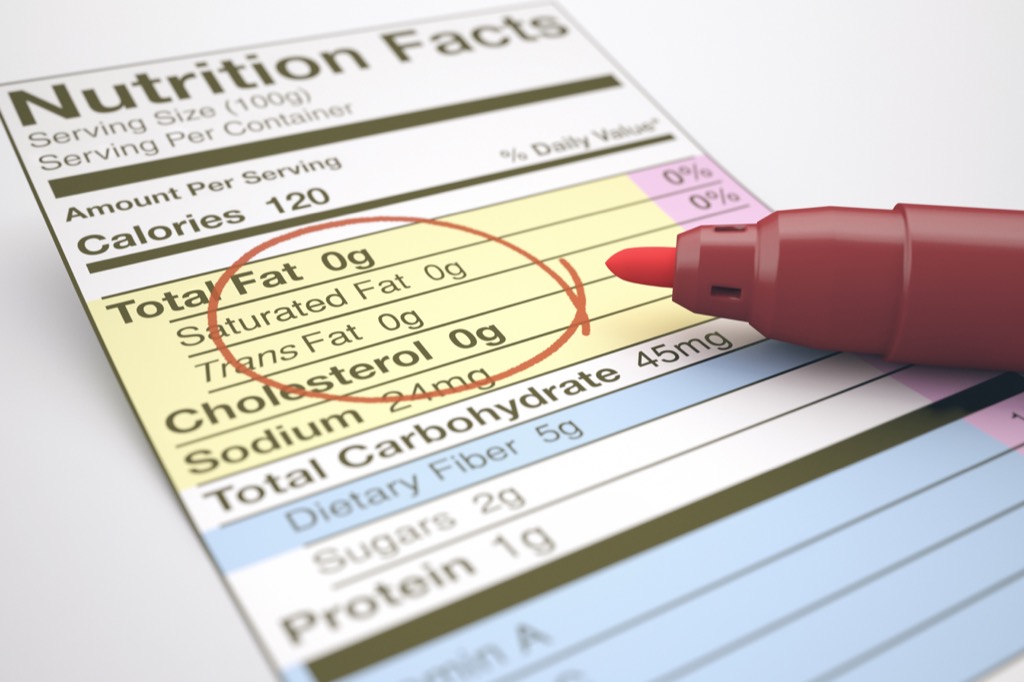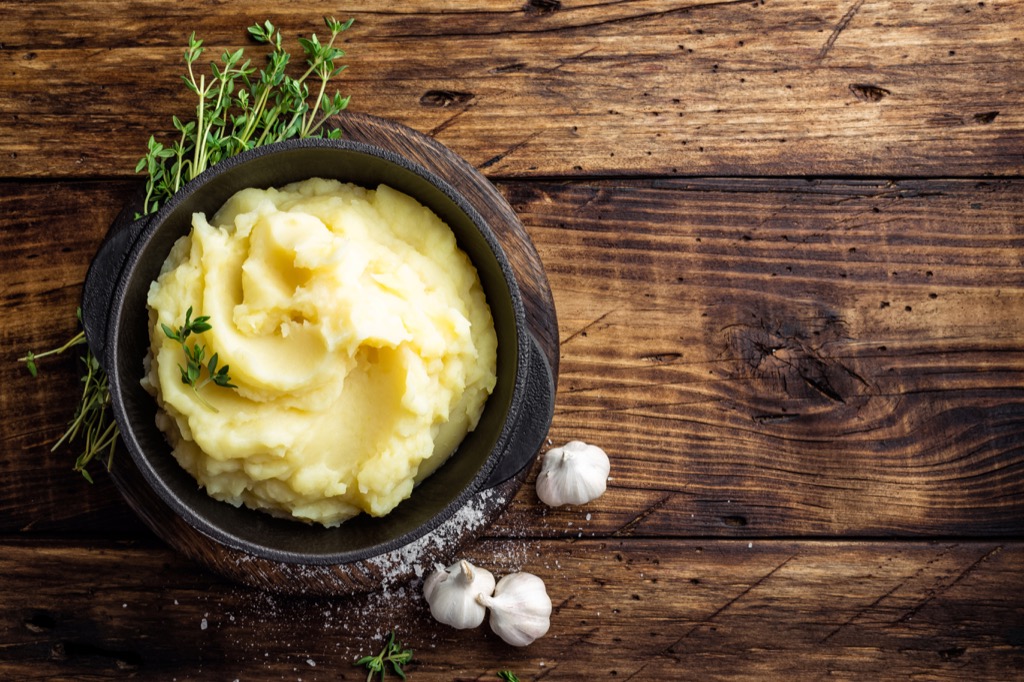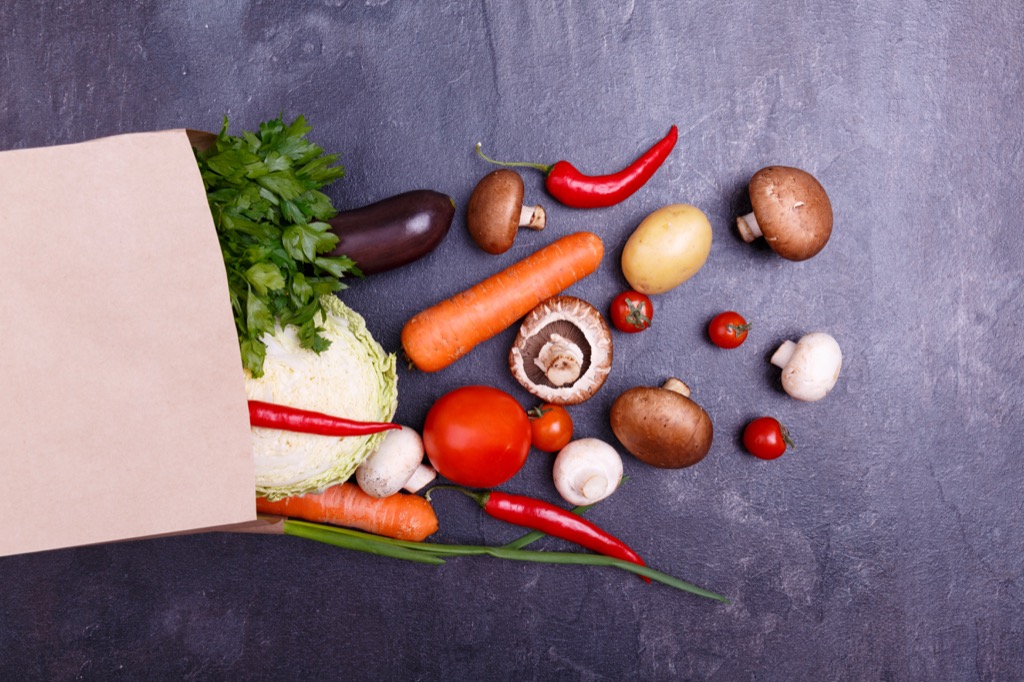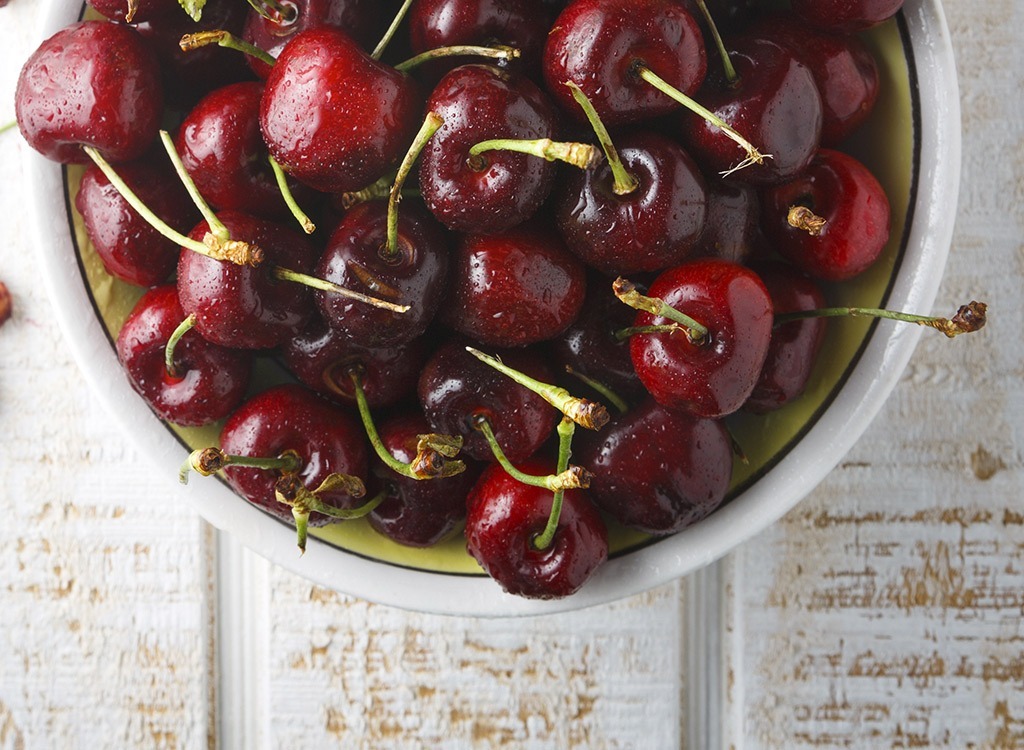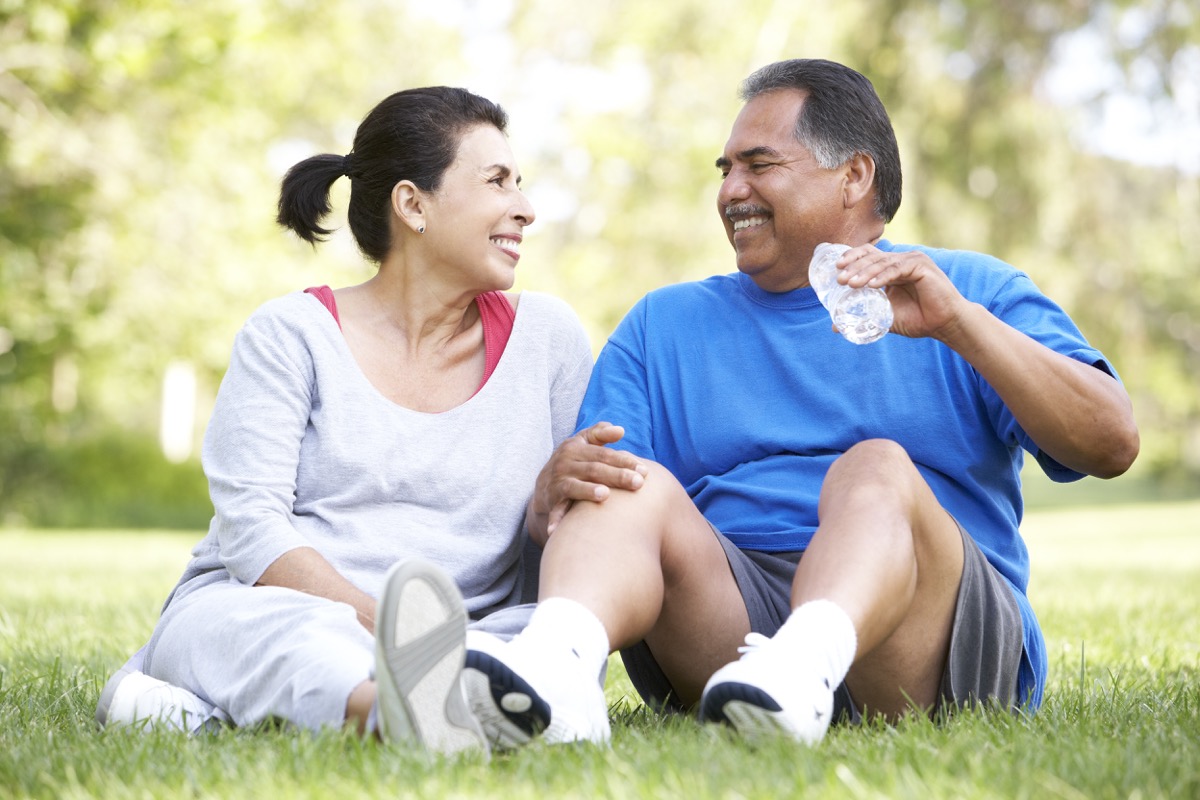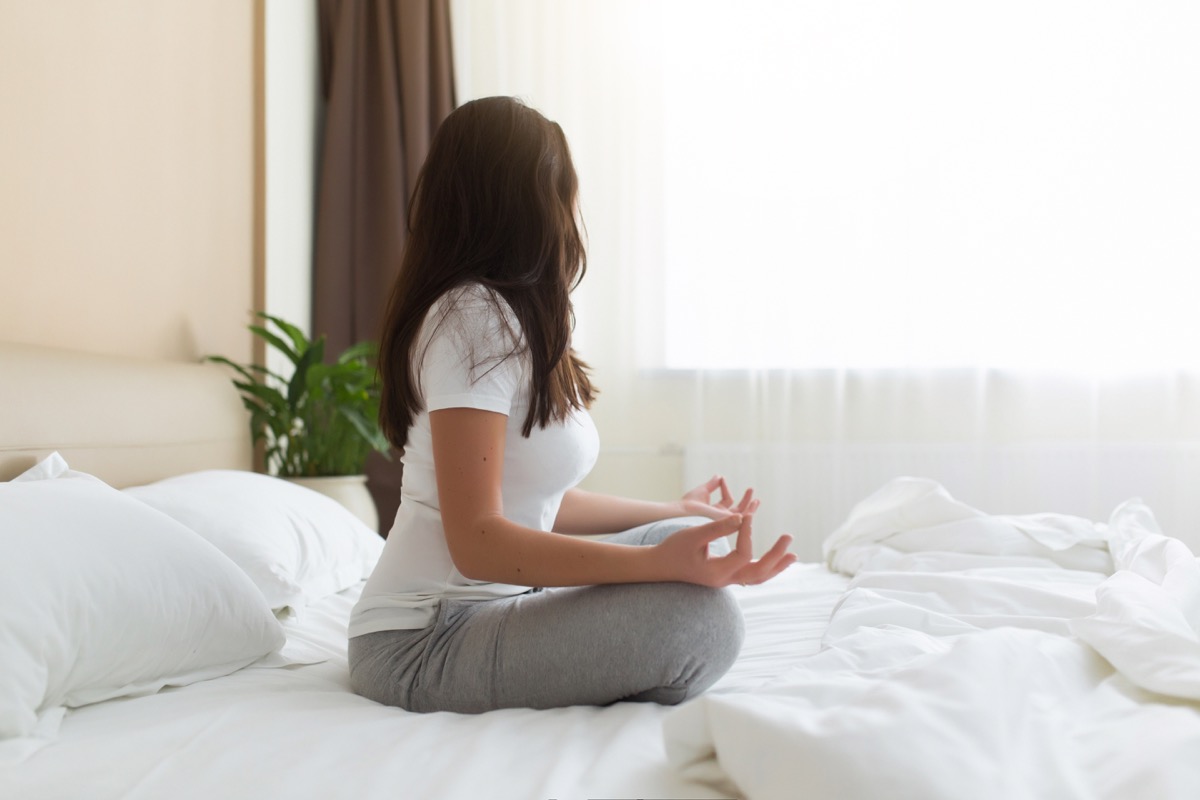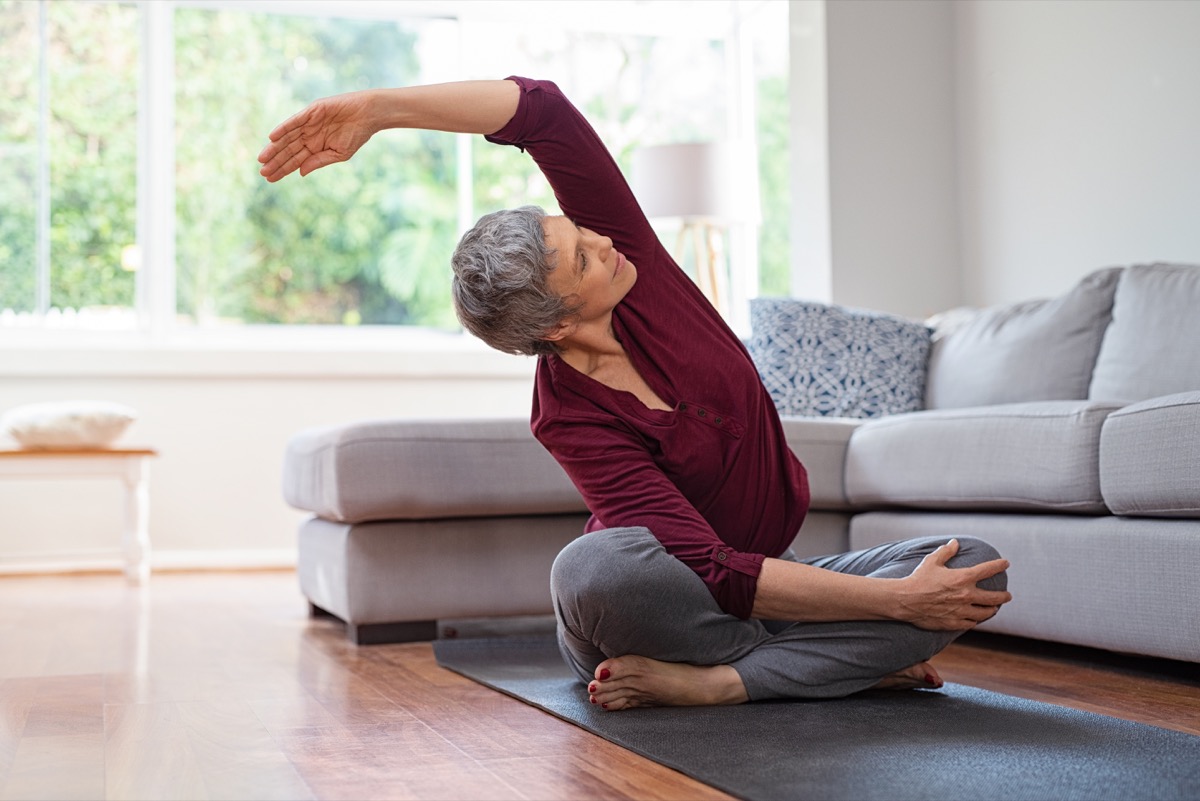“I’m a big believer in small changes—not only because they feel less daunting, but because the impact can be so inspiring,” says Amy Gorin, MS, RDN, a registered dietitian nutritionist and owner of Amy Gorin Nutrition in New York City. “A lot of the ways you can help your health in just a day will motivate you to continue with those healthy behaviors.” To start making changes today, try these expert-approved tips to turn around your health in record time. And to get an idea of how healthy you already are, check out the 40 Amazing Things Only Really Healthy People Know. Intermittent fasting may have been a trend, but in order to improve your health quickly, you’ll want to eat breakfast. “Be sure to eat within one hour of waking up,” says Cara Clark, CN, a California-based certified nutritionist and owner of Cara Clark Nutrition. “If you aren’t eating first thing in the morning after fasting overnight, then you’re keeping a slower metabolism and low blood sugar, potentially even causing your body to store fat when you do finally eat.” And for more reasons why you should eat something with your morning coffee, check out Skipping Breakfast Can Significantly Shorten Your Lifespan, Study Says. Drinking a big glass of water first thing after you wake up is one of the most refreshing things you can do in the morning. But the next time you do so, add some lemon for extra health-boosting benefits. “Start each morning with warm lemon water,” says Robyn Youkilis, a certified health coach in New York and Los Angeles, and author of Go With Your Gut. “It’s one of the oldest tricks in the book, but that’s because it works.” According to Youkilis, it’s “a gentle way to wake up your digestive system and can help support your body’s natural detox systems, reducing puffiness and bloating.” If you want to give yourself an extra boost, “you can also add lemon to your water throughout the day,” she says. And for more ways to start your day off right, check out these 50 Inspirational Morning Quotes to Kick Off Your Day. We know processed foods taste delicious, but unfortunately, most of them won’t do anything for you but make you feel lethargic. “Eating a standard American diet containing loads of added salt, sugar, and fat can lead to symptoms of depression and anxiety, while eating real, unprocessed foods—like nuts, veggies, fruit, and whole grains—will keep your mood up and give you natural energy,” says Hilary Hinrichs, a certified health coach and owner of Holistic Hilary in New York City. Sodium is everywhere. And when you’re eating too much of it, you’re going to feel the not-so-fun effects. “When you take in a lot of sodium, you can feel bloated and inflamed,” says Gorin. “Sodium can sneak into many foods—especially packaged foods, including frozen meals. Even bread can be a problem.” The American Heart Association recommends no more than 2,300 milligrams of sodium a day and moving toward an ideal limit of no more than 1,500 milligrams a day for most adults. “When you decrease your salt intake, you can immediately feel less bloated and healthier,” says Gorin. And for the foods you should be eating instead, try some of the 33 Foods That Fight Aging from the Inside Out. You aren’t just limited to eating your fruits and veggies. Gorin says it’s important to remember that you can drink them, too. “One of the easiest ways to help your health is to include vegetables or fruit with every meal or snack. That not only means fresh fruits and veggies, but also 100 percent juice,” she says. “Getting your daily servings of produce in the short-term may help lower blood pressure, digestion, and hydration. Then in the long-term, it helps lower your risk of heart disease and certain types of cancer.” You might feel like you’re perfectly hydrated. But when you think about it, how much water are you actually drinking? “The number one method you can use to turn your health around in one day is increasing your water intake,” says Jenny Carr, a Wyoming-based certified anti-inflammatory health coach and author of Peace of Cake: The Secret to an Anti-Inflammatory Diet. “Pure, clean water detoxifies, stabilizes blood sugar levels, lubricates joints, and—of course—hydrates,” she says. One of the simplest ways to make sure you stay hydrated is to carry a water bottle wherever you go. “Drinking enough water and being properly hydrated can impact your health in so many ways, from decreasing your headaches to helping relieve constipation,” Gorin says. “Carry a water bottle around with you during the day, and sip often. And don’t forget to drink up at meals! If you’re not a water fan, unsweetened tea can also help hydrate you.” And for some chic water bottle options, try one of the 25 Cute Water Bottles That Will Keep You Hydrated All Summer. You know that working out is a must; stretching, on the other hand, sometimes gets brushed aside. Not only does stretching make you feel better in the moment, but according to Harvard Medical School, it also keeps you flexible, strong, and mobile as you age. Additionally, it’s a quick and effective way to combat the tension in your body that can cause headaches, neck pain, jaw pain, and more. There’s no longer any need to wonder what to put on your plate to help you feel your best. According to Clark, you can keep it simple by focusing on three key groups that will help improve your health today and in the future. “Combine a lean protein, healthy fat, and carbohydrate in every meal,” she says. “This will lead to optimal energy and fat burning.” And for even more ways to boost your energy, try these 25 Ways to Boost Your Energy Level Without Coffee. How often do you take the time to really breathe during the day? Not short, shallow, stressed-out breaths, but deep ins and outs that instantly energize you? According to Harvard Medical School, deep breathing—also known as diaphragmatic breathing—results in a full oxygen exchange in your body that can slow your heartbeat and keep your blood pressure in check, not to mention help ease tension and anxiety. “We often go about our busy days without checking in on ourselves to see how we’re feeling,” says Hinrichs. “Taking deep breaths every hour can help combat stress and make you feel happier and more content to carry on with your day.” And for more ways to improve your heart health, avoid the 27 Daily Habits That Are Ruining Your Heart. Don’t just grab something from the shelf and put it in your cart. Before you decide to buy an item at the grocery store, Gorin says to make sure you’re reading the nutrition label first. Many of the items on store shelves contain a lot of sodium and added sugar—two things that can keep you from feeling your best. Once you cut them out, your health will start improving immediately. A protein deficiency probably isn’t something you need to worry about: According to Harvard Health, most American adults consume more than enough. The real thing to focus on for better health is which kind you’re eating. “Very often when we’re feeling low-energy, nauseous, or have a difficult time focusing, it’s because our blood sugar levels are out of whack,” Carr explains. “Eating clean protein—meaning organic, plant-based protein with no fillers, or grass-fed, free-range, or wild-caught meat—is a quick way to ground yourself and stabilize your blood sugar levels.” And if you’re still feeling low energy, it could be one of the 45 Sneaky Signs You’re Unhealthier Than You May Think. These days, it may feel strange to eat without some sort of distraction, like scrolling through your phone or watching your favorite show. Unfortunately, that bad habit isn’t doing your health any favors. “Mindful eating helps you notice flavors and textures, how you feel when you eat a particular food, and when you’ve had enough, allowing you to tune into your body’s natural hunger and fullness signals,” Youkilis says. And if you don’t stop to savor the moment, This Is What Happens to Your Body If You Keep Eating After You’re Full. It’s fun eating out at restaurants or ordering take-out. What’s not fun, though, is feeling horrible for the rest of the night because of it. Instead of eating meals that are typically loaded in sodium, health-harming oils, excess calories, and stomach-damaging grease, stick to making meals at home using wholesome, simple ingredients. Even one day of making the switch can start to help you feel better and improve your health. If your super-early breakfast is typically followed by a late lunch, you might want to rethink your meal schedule. “Eat within three to four hours of your previous meal,” Clark says. “Doing so protects your blood sugar from getting too low, which can cause carb or sugar cravings. By maintaining a stable and healthy blood sugar level, you’re not only preventing disease, but you’re also burning fat as fuel. This can lead to better moods, better energy, and more.” Stress takes a serious toll on the body. It can affect your health, mood, energy levels, productivity—basically every aspect of your life. By taking the time to check in on yourself and see how you’re feeling, you can address any issues that may be weighing you down. A lot of the time, doing so will make you feel better almost instantly. “Check in on yourself and how you’re feeling,” Hinrichs says. “Visualize yourself on a teeter-totter. If you’re feeling very stressed, the teeter-totter will go all the way to one side and stay there until you come back to a place of peace again. The longer you’re in that stressed state, the more energy will be lost to stress.” And for more ways to chill out, check out the 30 Science-Backed Ways to Relax When You’re Totally Stressed Out. You might run on caffeine every day, but overdoing it could be hurting your health. According to the Mayo Clinic, having too much caffeine not only causes sleep problems at night, but can also worsen anxiety, cause headaches, and negatively impact your mood. If you’re drinking more than 400 mg of caffeine a day, cut back on the coffee or soda to instantly improve your health. “When a person isn’t feeling well, they typically reach for some sort of comfort food,” says Carr. “Very often these are jam-packed with ingredients like processed sugar, wheat, dairy, refined oils, GMOs, and even alcohol—the top inflammatory foods that make you feel significantly less than ideal.” The solution, Carr explains, is to choose healthier versions of the foods you love most. “Find swaps for the foods you love that also support your health,” she says. “That way you’ll never feel deprived while simultaneously supporting the regeneration and vitality of your body.” Sleep is such an underrated tool in bettering your health. Despite being so easy—much easier than sweating it out at the gym or cooking a healthy meal!—getting the recommended seven and a half to eight hours can be a true challenge. But making it your mission to do so improves your physical and mental health. “None of us make great decisions when we’re overworked or overtired. I know I always feel like a new woman after a night of solid sleep,” Youkilis says. “[It’s] such a simple way to allow your body to rest, reset, and rejuvenate.” And for some simple sleep tips, check out the The 40 Best Ways to Sleep Better After 40, According to Science. If you’re feeling less than your best, step outside. A 2019 study published in the International Journal of Environmental Health Research found that simply spending a measly 20 minutes outdoors is all it takes to start reaping the benefits. Those don’t only include physical benefits, like a lower blood pressure and heart rate, but also mental benefits, like lowered stress levels and an improved mood. It’s time to finally listen to your parents and eat your veggies. And while you’re at it, make sure you’re eating the rainbow, too. “Try to eat five different colors of fruits and vegetables each day,” Clark says. “The guideline we’ve always been taught is to eat seven to nine servings of fruits and vegetables per day, and it’s easy to meet this when you eat them with every meal.” Sugar isn’t the devil. You can have it and enjoy it, but if you want to feel your best in a short amount of time, stick to mostly the kinds that come from fruit—not your go-to breakfast pastry. “Your body breaks down the sugar from fruit much more slowly, creating lasting energy,” Hinrichs says. “This doesn’t mean you should eat 100 bananas per day, but eating the recommended three to four servings of fruit will work great for sustainable energy.” Baths can be incredibly relaxing and invigorating, especially when you add Epsom salt to the mix. “Epsom salt baths are one of my standard go-tos when I’m not feeling my best. They nourish you with minerals, pull out toxins, and allow you the time and space to get quiet—something that’s very needed in the modern-day, fast-paced world,” Carr says. “If you make your Epsom salt bath at body temperature—about 98 to 99 degrees—it’s deeply nourishing and supportive for the nervous system.” Most people don’t chew nearly as much as they should while eating; making sure you’re doing so can quickly benefit your health. “Digestion begins in the mouth,” Youkilis says. “When you chew your food thoroughly, you stimulate your digestive juices to better process your meal. Plus, you’ll naturally slow down and likely eat a little less.“ae0fcc31ae342fd3a1346ebb1f342fcb Slumping over all day isn’t doing your health any good. By sitting and standing up straight, your confidence isn’t the only thing that will get an instant boost—your health will, too. According to the Mayo Clinic, keeping your body properly aligned can prevent excess strain on your joints, muscles, and spines, which can relieve any pain you might be feeling on the daily. That could mean no more headaches, back and neck pain, or jaw pain, as well as better breathing, less fatigue, and more energy. That wine you drink every night surely tastes great. Unfortunately, it might be one of the reasons why you’re not feeling your best. “You’ve probably noticed drinking after work can cause fatigue later in the night. That’s because alcohol is a depressant and slows you down,” Hinrichs says. “Limiting the amount of alcohol you drink per day or week can help your body stay energized for longer periods of time. While drinking water between alcoholic beverages can help combat the problem, moderation is key for sustainable energy.” While moving your body is important in general, there’s nothing like taking things up a notch and working up a sweat to really amp up your overall health. “It’s amazing what a sweaty workout can do for your mood,” Youkilis says. “Exercise or movement is the perfect way to clear your mind, reduce stress, and boost your energy.” By now, you probably know how great meditating is for your health. A 2015 study published in JAMA Internal Medicine found it can help you sleep better at night, combat anxiety and depression, and can even lower your blood pressure and keep your heart healthy. While the long-term health benefits of a daily meditation session are clear, you’ll start feeling its mood-boosting and anxiety-reducing effects the same day. Any type of exercise you do can help better your health. One that can be especially useful, though, is lifting weights. According to the Cleveland Clinic, strength training can help improve bone density and decrease your risk of injury, as well as improve your basal metabolic rate, which helps your body burn calories better. Something you’ll start noticing right away is its ability to up your energy levels. After a single session, you’ll be feeling like a million bucks. Many Americans spend all day sitting and staring into a computer screen. And obviously, that’s not exactly the best for your physical or mental health. To get that lost energy back, make sure you’re setting aside just a little bit of time every day to move freely, whether you’re going on a walk, taking a yoga class, or stretching. “Move your body for at least 30 minutes a day,” Clark says. “I typically recommend doing so at least a few times per week, and kicking it off as soon as possible will help you feel your best.” And for some simple ways to get started, learn these 50 Easy Ways to Stay Fit After 50.
